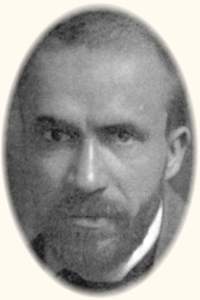|
|
|
Gyula Juhász
|

Gyula Juhász (1883-1936)
One of the major Hungarian lyrical talents of the Nyugat generation.
He studied Latin at the University of Budapest where he became a friend of Babits (q.v.) and Kosztolányi (q.v.). He recognized very early Ady's (q.v.) significance. Next to Attila József (q.v.), one of Juhász' protégés he was the most significant sympathizer of the workers' movement. His poem Hungarian Summer [Magyar nyár], expresses best his revolutionary expectations.
His love poetry centres around the figure of 'Anna,' partly influenced by his love for the actress Anna Sárvári, but it is also an expression of a deep-seated general sadness and renunciation. His lyrics were driven by the music of form; three hundred of his poems are sonnets, but he also cultivated the couplet and iambic free verse.
On three separate occasions he won the Baumgarten prize, the most coveted literary award Hungary could offer between the two World Wars. In his lifetime most of his books were published in his native Szeged town, such as This is My Blood [Ez az én vérem], 1919, Forget-me-not [Nefelejcs], 1921, and Testament [Testamentum], 1925.
Given to depression, he tried to commit suicide The third time in 1936 he suceeded, he died at the age of fifty four.
HOW GOLDEN WAS...
How golden was her hair? I don't remember,
but I recall the wheatlands on the plain.
When summer comes and glows in golden splendour,
I sense her in the sun-gold scene again.
The blueness of her eyes? I don't remember,
but when I see the brightening autumn skies,
a melancholy parting in September
imbues me with the blueness of her eyes.
How silky was her voice? I don't remember,
but when in spring the meadows breathe a sigh,
I feel it's Anna's voice, so warm and tender,
it's from a spring as distant as the sky.
|
|
|